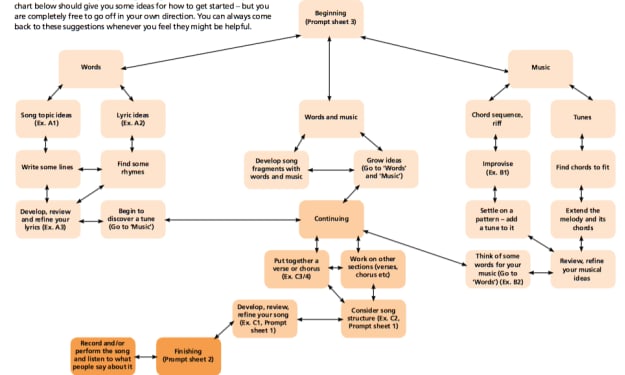Students or Consumers?
Is our capitalist consumerist society capable of creating a formal education system which would encourage its students to create a better future?

In our currently set-up economic system otherwise known as late-stage capitalism, demand for services and products no longer comes from the consumers but is rather artificially created by suppliers. The most successful businesses in the world were the first to figure this out. Steve Jobs has said it himself:
“Some people say, "Give the customers what they want." But that's not my approach. Our job is to figure out what they're going to want before they do.”
The times when people bought products because they needed them out of necessity are long gone. Nowadays, we buy the majority of our belongings not because we specifically need them but because we have a desire for them. And that desire has been cultivated by genius marketing campaigns, aimed at conditioning people to believe in lack. To believe that if they don’t have a product that everybody else has, their lives are less valuable. And when the product is advertised on every TV screen, social media app or billboard, not only does it cultivate desire but it also reduces individual capacity to reason. Many people face this double-ended dilemma when it comes to consumption, they want to be individualistic enough to be recognised as unique from others but not different enough to stand out from the crowd where they are considered weird or strange. Thus, the vast majority give in to the sense of security without questioning the value of products and services and follow what a group of like-minded people are doing, what trends they’re following and what they’re consuming.

Perhaps, buying what your friends and neighbours are buying used to be the norm when society was less connected and less globalised. There was only so much you could choose from anyways, that purchasing decisions didn’t seem like a problem, especially if you had the money to purchase in the first place. But now, we have anything we could possibly think of at our fingertips and many companies, as well as suppliers selling almost identical products, are competing for our attention. So what differentiates them from the crowd? The main deciding factor for the consumer becomes a really good marketing campaign. However, that means that the value of the product is not based on its inherent value but rather on how it is valued among others. If enough people accept the product or service as worth their money, and it gains popularity across a large enough portion of society, the trend influences people who haven’t yet bought into it to accept it as a necessity. And because of that, some absolutely bizarre products have come into the widespread surface. Take pop sensory toys as an example, their popularity was generated through ads on Tiktok and soon enough they became the new fidget spinners of 2022. Almost every child in school asked their parents to buy one of them because their classmates had one. There was no value in having it. The toy did not help with anxiety or fidgeting but it did persuade children into thinking that they are missing out on something if they didn’t have it. While this tendency is obvious for physical products such as clothing, toys or technology, I want to make a case that higher education is no exception to this.
To understand why we first need to understand that global market value is generated out of the shared societal belief that a certain product or service is valuable. Thus, if society thinks that something has value, it becomes priced as valuable. Since the beginning of capitalism and colonisation, western society has established itself as the superpower of values, the determiner of trends and the police officer of morality. Now, how does that tie into the globalised education system you might ask?
According to QS Top Universities website, there are more than 26,000 universities in the world. And with growing accessibility for travelling and increasing standards of living, many students are able to choose where they want to study from any place in the world. So, how does one make such a decision? When the possibilities for a prospective student are not restrained by financial limitations, the student and their parents usually rely on global university rankings, and expectations of education value abroad which are generated by marketing campaigns as well as commonly accepted ideas within their society on overseas education systems.
There are three most popular rankings: QS, ARWU and Times Higher Education. Each of them has very different criteria for placing universities in their league tables and their methodology varies a lot. For instance, ARWU and THE place more importance on research output whereas QS - on self-reported surveys. The results can vary to the point where “the National University of Singapore ranks 11th place in the QS rankings, 23rd in the THE rankings and 85th in the ARWU rankings.” But I’m not here to debate the methodology of these rankings, there are plenty of articles which have done so and you can refer to the one from Science and Development Network for a more extensive explanation. However, for the purpose of this, it’s enough to understand that university rankings are neither the most reliable way of measuring the quality of the university nor the most certain since even the major league tables have such high variations.
What I believe is more penetrative than the league tables, and perhaps is even a major factor in producing the results of current rankings, is the societal perception of certain countries in terms of the standard of their education system. I’d like to argue that this globally ranging perception is nothing but a symptom of postcolonialism. As the father of postcolonialism Edward Said has explained, there is an enormous relationship between knowledge and power. The enforcement of a new language and culture upon the colonised, the suppression and replacement of their values, the rewriting of their histories is an act of “colonising the mind” in pursuit of domination and exploitation. Eventually, not only the coloniser but also the colonised start seeing the world order in a particular way, internalising the state of affairs and their own “inferiority” as the natural order of life. Thus, colonialist thought continues to penetrate society even years after the coloniser has left the territory. The evidence can be seen in Hong Kong, which has been colonised by the British Empire from 1841 to 1997. Even decades after colonisation has ended, the best schools in the region are not only English-speaking schools but the majority of them are Christian, continuing the legacy of British rule. Within Hong Kong society, the English language is used as a measure of intelligence, pride and class, placing Cantonese as of secondary importance. One of the most influential thinkers of postcolonialism, Gayatri Chakravorty Spivak has argued that Western knowledge operates for the economic interest and political power of the West against the East. Thus, if Hong Kong society accepts the idea that their education system has to be tied with the British education system to be more valuable and they send their best students abroad to study in the idealised higher education institutions of the UK, not only do they contribute to the economic interest of the UK, since international fees are at least three times higher than home student fees but they also perpetuate the influence of Western ideology.
Although most universities have not published data to account for their marketing spending, The Guardian investigation revealed that marketing budgets were growing with each year and in 2017 a few UK universities even exceeded £3m in marketing spending. If all it takes to influence a large portion of society is a good marketing campaign, it makes sense that universities are looking at students the same way that companies within capitalist society are looking at consumers. Students become valued for their economic purchasing power rather than their creativity or independent thinking. Perhaps the whole premise of a university being an institution where one comes to gain knowledge and expand their consciousness becomes overshadowed by the capitalist vessel of economic benefit and labour force.
“Students pay record levels of fees, staff are not paid enough, yet millions are being spent on marketing as institutions appear to favour style over substance. This approach is at odds at what students actually say they want.” - says Paul Cottrell, the former University and College Union (UCU) general secretary.
An average undergraduate international student in the UK pays at least £16,000 for a year of education. In the majority of UK universities, contact hours are few and far in between and priority is given to developing “independent learning skills”, which is a glamorised way of saying that the student has to teach themselves the subject. Yet each year, the number of international students coming to study in the UK rises, diversifying the university environments, and consequentially producing better rankings since diversity is one of the criteria for university league tables. International students also increase the number of highly skilled potential labour force in the UK, which subsides the political and creative power of those same international students to contribute to developing their own country. The House of Commons published data says that international students from the 2018/19 cohort have brought in a net economic benefit of approximately £25.9 billion during their studies, which includes their tuition fees as well as living expenditure and other related spending in the UK. The cost of those international students only accounts for a £2.9 billion loss for the UK government in funds used for providing public services and teaching grants. Meaning that there is an immense advantage for the UK to attract international students, regardless of the quality of education provided.

Interestingly, out of the countries of origin for international students in the UK, the former British colonies are taking the lead when it comes to bringing in international students. The question is, is higher education in the UK, worth its price? Or, have the students of the globalised world become consumers of the colonialist idea that their national education is less valuable?
About the Creator
Enjoyed the story? Support the Creator.
Subscribe for free to receive all their stories in your feed. You could also pledge your support or give them a one-off tip, letting them know you appreciate their work.





Comments
There are no comments for this story
Be the first to respond and start the conversation.